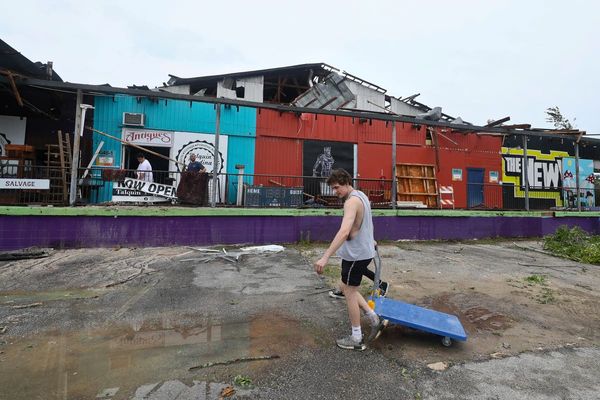
“If you don’t know, vote no” has a catchy ring. But an informed vote is so much better. If finding out is easy – and it is – why not take the opportunity to cast an informed vote at a referendum of great importance for Australia?
Start with common ground. The yes and no cases in the referendum debate agree that there is an unacceptable gap between the living standards of a very large proportion of Aboriginal and Torres Strait Islanders and other Australians. As the official no case says, “We all want to help Indigenous Australians in disadvantaged communities to close the gap and achieve reconciliation.”
In July 2020, every level of Australian government, from commonwealth to local, together with Aboriginal and Torres Strait Islander representatives, accepted that challenge. They joined in the National Agreement on Closing the Gap, which in clause 6 recognises that if the gap is to be closed, Aboriginal and Torres Strait Islander people must “have a genuine say in the design and delivery of services that affect them”. Clause 14 of the agreement says that the parties “intend … that it will reflect shared priorities, progress and feedback from Aboriginal and Torres Strait Islander people.”
The voice would be ideally suited to help fulfill these aims – but it can only do it if the referendum is successful.
After its first review of the agreement’s performance, the Productivity Commission issued a draft report in July 2023. It said:
There appears to be an assumption that ‘governments know best’, which is contrary to the principle of shared decision-making in the Agreement. Too many government agencies are implementing versions of shared decision-making that involve consulting with Aboriginal and Torres Strait Islander people on a pre-determined solution, rather than collaborating on the problem and co-designing a solution.
Here, clearly stated, is one source of the problem. The way forward is also clear. If Aboriginal and Torres Strait Islander people are given a seat at the table, listened to respectfully and guaranteed that, this time, the door to the room will remain open and their voice will be heard, informed decisions will be made – democracy at its best.
At its heart, this is about giving Aboriginal and Torres Strait Islander people a chance to share their perspectives and priorities on government policy. Policy informed in this way is bound to lead to better outcomes – and better outcomes are sorely needed. No one disputes that.
But read the official no case carefully. It is readily accessible on the Australian Electoral Commission’s website. It does not merely lack detail. It includes nothing that might help to close the gap.
The Coalition, led by Peter Dutton, suggests that parliament could pass legislation to establish a different means of engagement with our First Nations people. But legislation can be changed whenever the government changes its mind. Justice will only be served if the voice is entrenched in the constitution.
Entrenching the rights of a historically marginalised group isn’t about granting “extra” rights; it’s about ensuring that all are allowed into the room. Australia’s First Nations people have seldom been permitted entry, let alone a place at the table. It cannot be “racist” to remedy that. The constitution should embody the values and principles of the society it represents. If Australia’s constitution continues to overlook the rights and concerns of its First Nations people, it continues a racist legacy of exclusion.
The rich and the powerful need no guarantee that, when seats at the table are allocated, they will be near the head. After a successful referendum, however, First Nations people will be given an invitation to enter the room, and to advocate for their interests while there.
First Nations people occupy a unique position in this country. They have had their lands seized without compensation, and 65,000 years of their history and culture have been upended, with catastrophic consequences. The vast majority hope that the referendum is successful. Unique steps to right the wrongs done to them are absolutely justified. Should the rest of us deny their wish for justice simply because we are frightened of shadows?
• David Harper AM KC is a former judge of the supreme court of Victoria. He was appointed in March 1992 and served as a member of the court of appeal between 2009 and 2013. He was made a member of the Order of Australia in the 2008 Queen’s birthday honours list for services to the judiciary, law reform and international humanitarian law, and for his work with people released from prison
• This article was written in consultation with, and has benefited from the insights of, Marcia Neave AO, former judge of the Victorian court of appeal; Pamela Tate AM KC, former judge of the Victorian court of appeal; and Ian Dunn AM, former President of the Law Institute of Victoria







